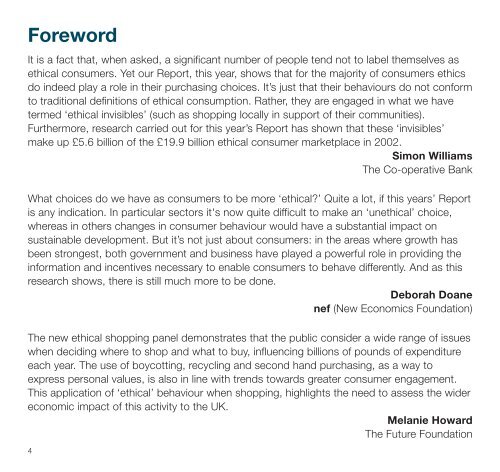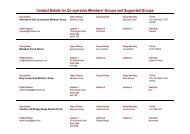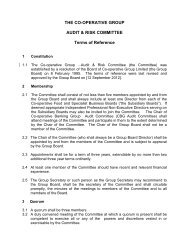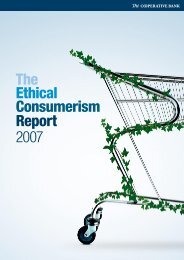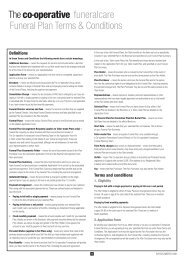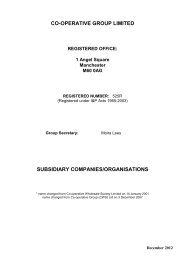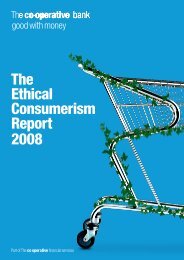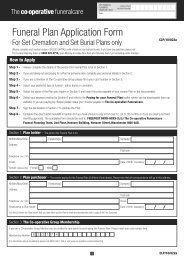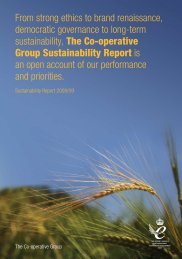The Ethical Consumerism Report 2003 - The Co-operative
The Ethical Consumerism Report 2003 - The Co-operative
The Ethical Consumerism Report 2003 - The Co-operative
Create successful ePaper yourself
Turn your PDF publications into a flip-book with our unique Google optimized e-Paper software.
ForewordIt is a fact that, when asked, a significant number of people tend not to label themselves asethical consumers. Yet our <strong>Report</strong>, this year, shows that for the majority of consumers ethicsdo indeed play a role in their purchasing choices. It’s just that their behaviours do not conformto traditional definitions of ethical consumption. Rather, they are engaged in what we havetermed ‘ethical invisibles’ (such as shopping locally in support of their communities).Furthermore, research carried out for this year’s <strong>Report</strong> has shown that these ‘invisibles’make up £5.6 billion of the £19.9 billion ethical consumer marketplace in 2002.Simon Williams<strong>The</strong> <strong>Co</strong>-<strong>operative</strong> BankWhat choices do we have as consumers to be more ‘ethical?’ Quite a lot, if this years’ <strong>Report</strong>is any indication. In particular sectors it's now quite difficult to make an ‘unethical’ choice,whereas in others changes in consumer behaviour would have a substantial impact onsustainable development. But it’s not just about consumers: in the areas where growth hasbeen strongest, both government and business have played a powerful role in providing theinformation and incentives necessary to enable consumers to behave differently. And as thisresearch shows, there is still much more to be done.Deborah Doanenef (New Economics Foundation)<strong>The</strong> new ethical shopping panel demonstrates that the public consider a wide range of issueswhen deciding where to shop and what to buy, influencing billions of pounds of expenditureeach year. <strong>The</strong> use of boycotting, recycling and second hand purchasing, as a way toexpress personal values, is also in line with trends towards greater consumer engagement.This application of ‘ethical’ behaviour when shopping, highlights the need to assess the widereconomic impact of this activity to the UK.Melanie Howard<strong>The</strong> Future Foundation4


